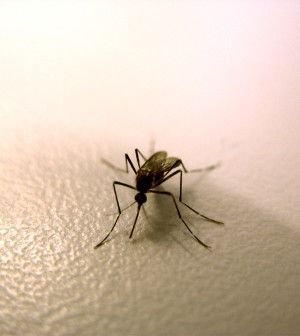- 10 Strategies to Overcome Insomnia
- Could Artificial Sweeteners Be Aging the Brain Faster?
- Techniques for Soothing Your Nervous System
- Does the Water in Your House Smell Funny? Here’s Why
- Can a Daily Dose of Apple Cider Vinegar Actually Aid Weight Loss?
- 6 Health Beverages That Can Actually Spike Your Blood Sugar
- Treatment Options for Social Anxiety Disorder
- Understanding the Connection Between Anxiety and Depression
- How Daily Prunes Can Influence Cholesterol and Inflammation
- When to Take B12 for Better Absorption and Energy
You Carry Your ‘Microbial Cloud’ With You


In a finding that’s sure to alarm germophobes everywhere, scientists say people emit a “microbial cloud” of bacteria wherever they may be.
The study found that air samples could even pinpoint which individual had just left a sealed chamber, based on the makeup of their particular cloud of bacteria.
“We expected that we would be able to detect the human microbiome in the air around a person, but we were surprised to find that we could identify most of the occupants just by sampling their microbial cloud,” study author James Meadow, of the University of Oregon, said in a news release from the journal PeerJ.
The findings were published in the journal on Sept. 22.
It’s long been known that humans are host to a myriad of mostly helpful microbes, both in the gastrointestinal tract and on the skin. This colony of organisms is what scientists have dubbed the “microbiome.”
Now, the Oregon study finds that people also emit some of their microbiome in a kind of haze around themselves.
In the study, Meadow’s team tested the air around 11 different people while they were each placed alone in a sealed, sanitized chamber.
The researchers found that the presence of most of the people could be sequenced and identified within four hours of leaving the chamber — just by the cloud of bacteria in the air they had left behind.
Different combinations of several groups of bacteria commonly found on and in humans are the key to distinguishing individuals, the research team said. Key species were Streptococcus, usually found in the mouth, and skin germs such as Propionibacterium and Corynebacterium.
“Our results confirm that an occupied space is microbially distinct from an unoccupied one,” Meadow said, and “demonstrate for the first time that individuals release their own personalized microbial cloud.”
The findings may help improve understanding of how infectious diseases are spread in buildings, or even offer new ways to identify crime suspects, the researchers said.
More information
The Society for General Microbiology has more about bacteria.
Source: HealthDay
Copyright © 2026 HealthDay. All rights reserved.










